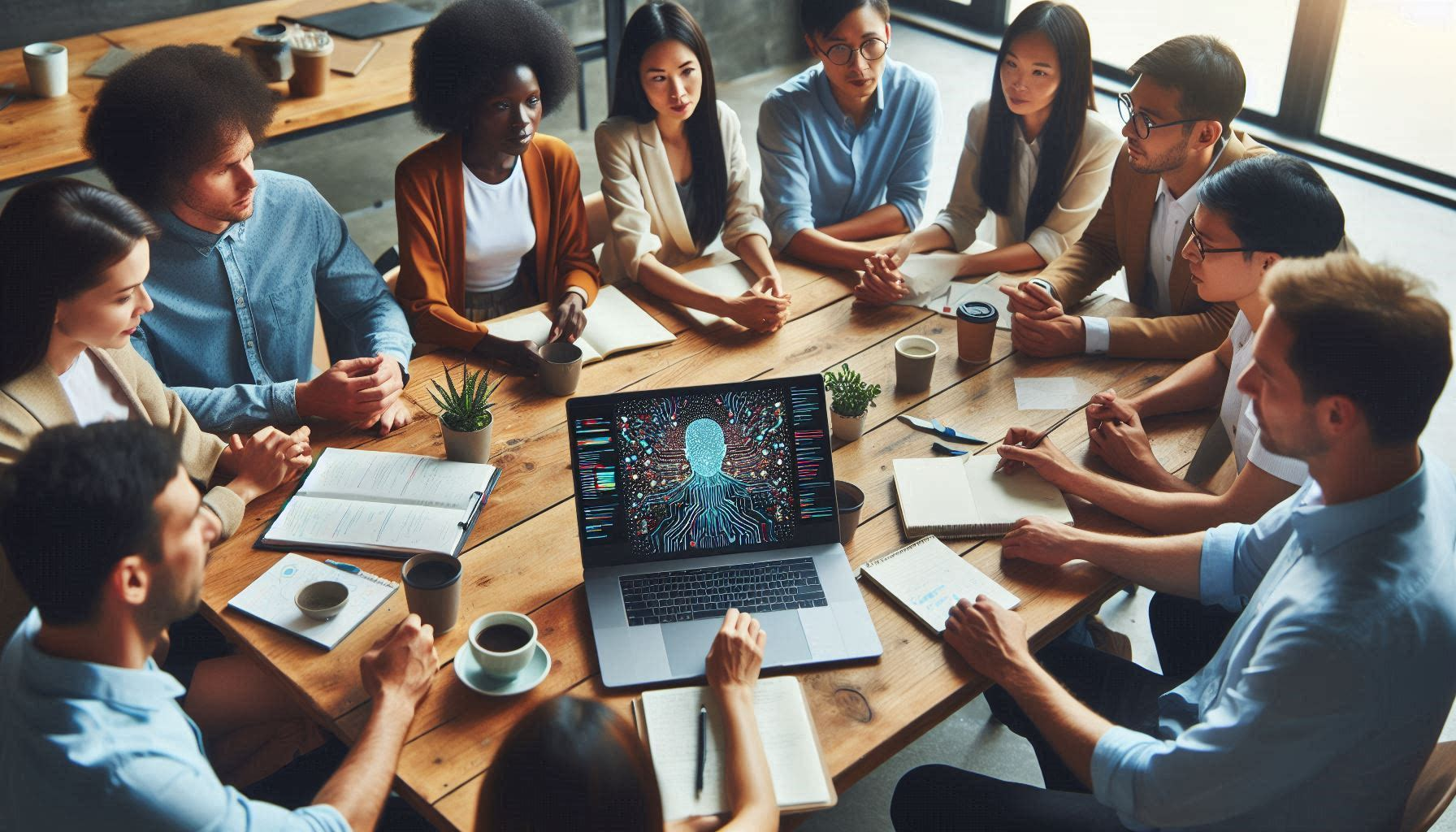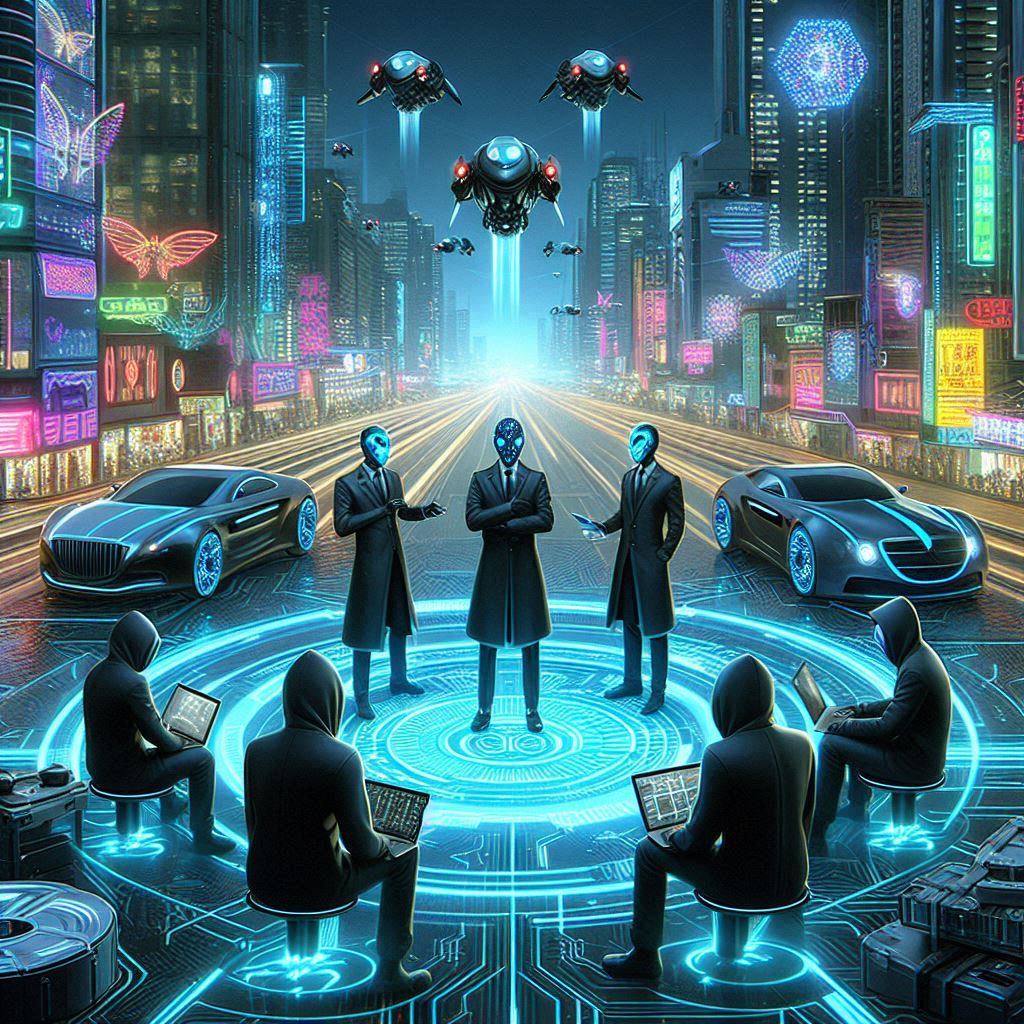
Introduction
Generative AI is making significant waves in the world of content creation, spanning various fields like writing, art, marketing, and entertainment. By leveraging sophisticated machine learning algorithms, this technology can generate text, images, music, and videos, boosting both productivity and creativity. This article delves into the transformative impact of generative AI on content creation, the tools and techniques involved, and the broader implications of this technological revolution.
The Emergence of Generative AI
Generative AI refers to systems that create new content by learning patterns from existing data. These systems, such as OpenAI's GPT-4, are trained on extensive datasets of text, images, and other media. By analyzing these patterns, generative AI produces original content that often mirrors human-created work.
Applications of Generative AI in Content Creation
Text Generation
One of the most prominent uses of generative AI is in text generation. AI models like GPT-4 can write articles, essays, and even books, imitating various writing styles and tones.
-
Content Writing
AI tools like Jasper and Copy.ai help writers generate ideas, draft articles, and optimize text for SEO. -
Academic Writing
Researchers can use AI to summarize papers, generate literature reviews, and suggest new research topics. -
Creative Writing
Authors can overcome writer's block, develop plot ideas, and create character dialogue with AI assistance.
Image and Art Creation
Generative AI is also impacting the visual arts. Tools like DALL-E and MidJourney can create stunning images from textual descriptions, opening new possibilities for artists and designers.
-
Digital Art
Artists can generate unique artwork, explore new styles, and collaborate with AI to produce innovative pieces. -
Graphic Design
AI tools assist in creating logos, illustrations, and design elements quickly and efficiently. -
Photography
AI enhances and edits photos, creates realistic images from sketches, and generates entirely new scenes.
Music Composition
Generative AI's impact on music composition is profound. It can compose original music, generate accompaniments, and replicate the style of famous composers.
-
Music Production
Tools like Amper Music and AIVA enable musicians to create original compositions, experiment with genres, and produce high-quality tracks. - Film ScoresAI can compose background scores for films, video games, and other media, saving time and resources.
-
Songwriting
AI helps songwriters generate lyrics, melodies, and chord progressions, fostering creativity in the music industry.
Video and Animation
Generative AI is transforming video production and animation by automating the creation of visual content.
-
Video Editing
AI tools edit videos, create special effects, and generate animations, streamlining production. -
Animation
AI creates animated characters, scenes, and short films, making animation more accessible. -
Virtual Reality
AI generates realistic environments and characters for virtual reality, enhancing immersion.
Tools and Techniques in Generative AI
Natural Language Processing (NLP)
NLP is crucial for generative AI text applications. It enables machines to understand and generate human language by analyzing large datasets of text.
-
Transformer Models
Models like GPT-4 use transformer architecture to generate coherent, contextually relevant text. -
BERT
Bidirectional Encoder Representations from Transformers (BERT) is another powerful model for understanding word context.
Generative Adversarial Networks (GANs)
GANs are used for generating images, videos, and other visual content. They consist of two neural networks—a generator and a discriminator—working together to create realistic content.
- Image Generation: Tools like DALL-E use GANs to generate high-quality images from text.
- Video Generation: GANs generate realistic video sequences by learning patterns from existing data.
Reinforcement Learning
Reinforcement learning involves training AI models to make decisions by rewarding desired behaviors. It's used in various generative AI applications, such as game design and interactive content.
- Game Design: AI generates game levels, characters, and storylines based on player preferences.
- Interactive Content: AI creates interactive stories and experiences that adapt to user inputs, enhancing engagement.
Implications of Generative AI
Enhancing Creativity
Generative AI enhances human creativity by automating routine tasks and providing new ideas, allowing creators to focus on complex, innovative work.
Ethical Considerations
Generative AI raises ethical questions about authorship, originality, and misuse. Establishing guidelines and regulations ensures responsible use of AI-generated content.
Economic Impact
Generative AI significantly impacts industries ranging from media and entertainment to marketing and education. It offers efficiency and innovation but may disrupt traditional job roles and require new skill sets.
High-Quality Images
To visually enhance the understanding of generative AI's impact, here are some high-quality images:
-
AI-Generated Artwork: CLICK HERE
-
AI-Powered Writing Tool Interface: CLICK HERE
-
AI Composing Music: CLICK HERE
-
AI in Video Editing: CLICK HERE
Summary and Conclusion
Generative AI is revolutionizing content creation across various domains, enhancing productivity and creativity by leveraging advanced machine learning techniques. Tools and techniques such as NLP, GANs, and reinforcement learning play a crucial role in this transformation. However, the rise of generative AI also brings ethical and economic considerations that must be addressed. Establishing guidelines for responsible use and preparing the workforce for new skills are essential steps to maximize the benefits of generative AI while minimizing potential drawbacks.
In conclusion, generative AI is a game-changer for content creation, offering unprecedented opportunities for innovation and efficiency. As technology evolves, it will be exciting to see how it further transforms various industries and creative endeavors.


